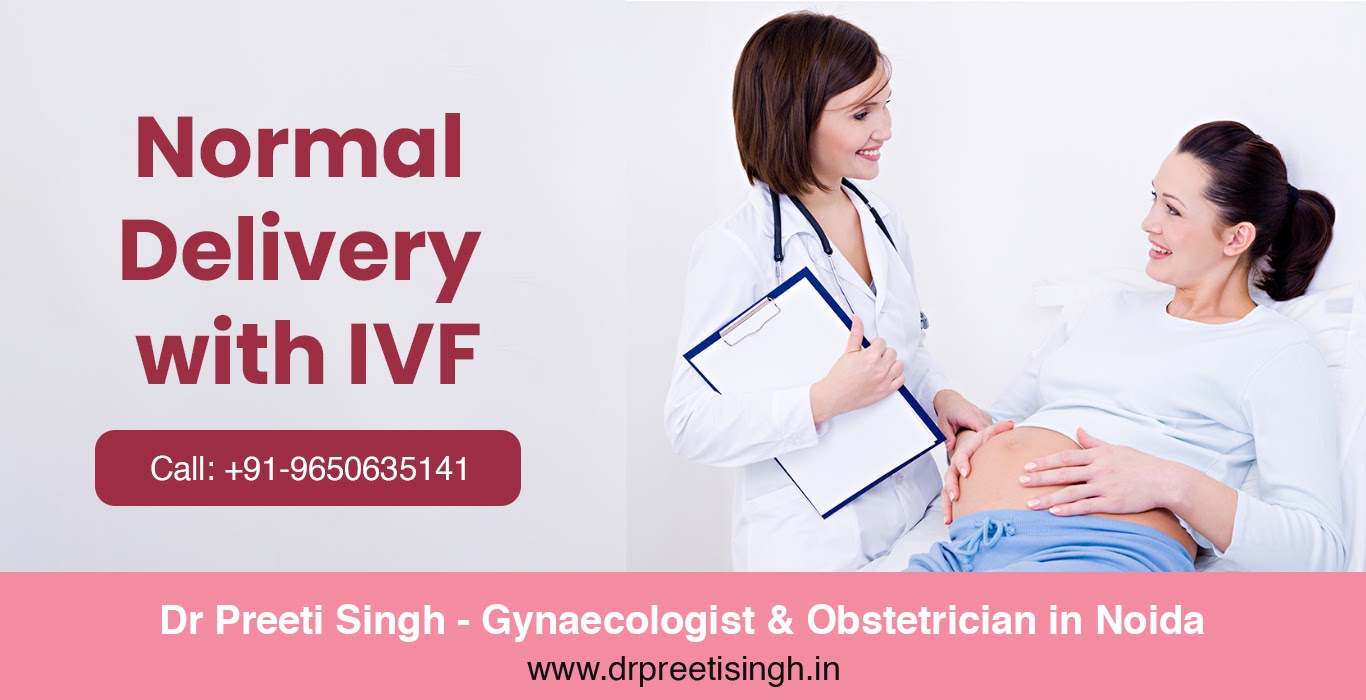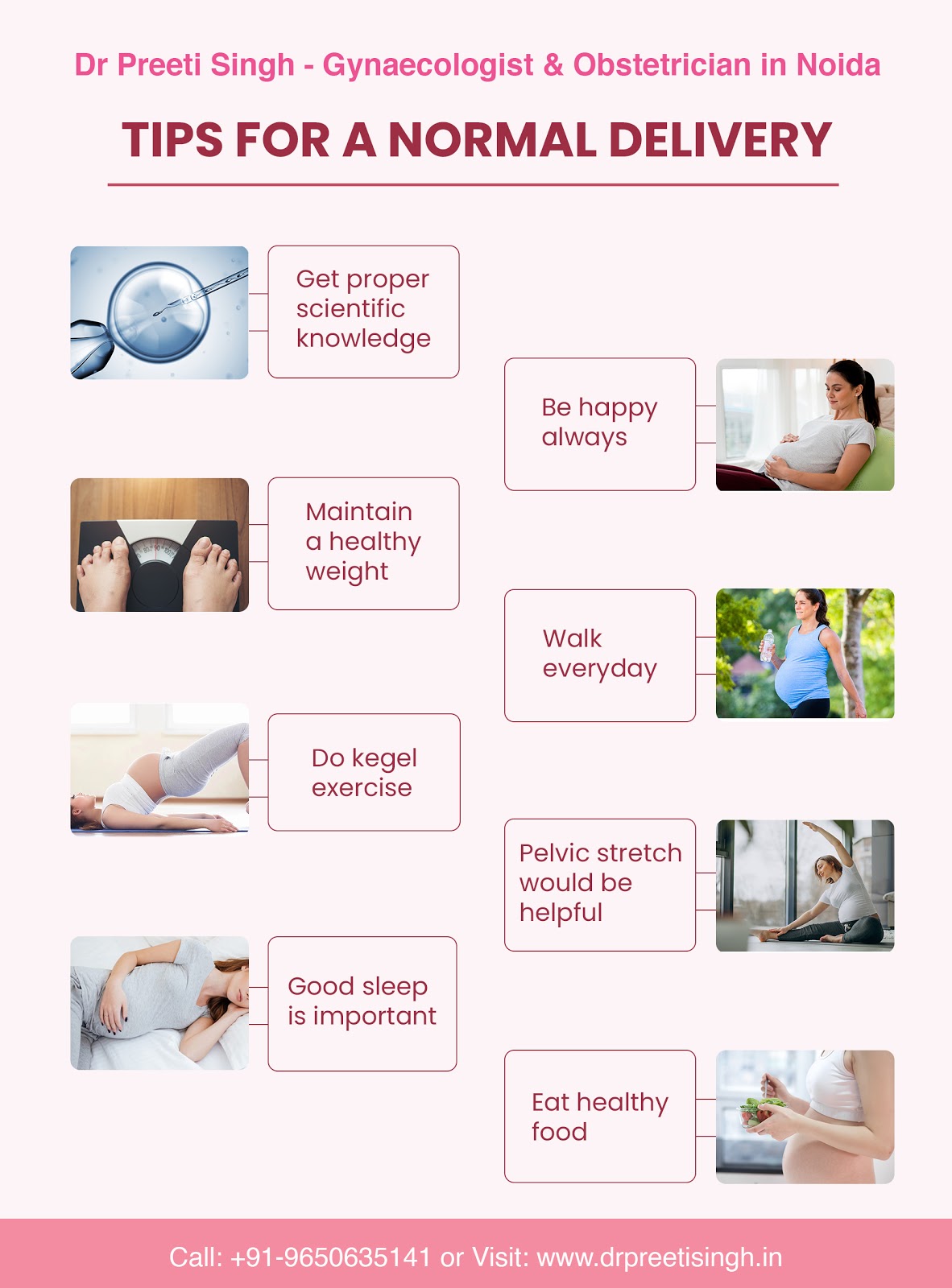Is It Possible To Have Normal Delivery in IVF?

Patients opting for In vitro fertilisation (IVF) might wonder what's in store for them after a round of IVF. For most couples, the thought of achieving pregnancy may seem far different and alienated from "natural" conception. However, IVF and normal delivery procedures are more or less the same.
High-Risk Factors include:
- Normal Pregnancy Vs IVF Pregnancy
- Reasons for a C section
- Complications of IVF Pregnancy
- Normal delivery with IVF

1. Normal Pregnancy Vs IVF Pregnancy :-
In an IVF procedure, pregnancy is achieved with ovarian hyper-stimulation, natural IVF, final maturation induction, egg retrieval, sperm and egg preparation, co-incubation, embryo culture and selection, embryo transfer, and adjunctive medication. On the other hand, the method for a normal pregnancy is copulation. It is worthwhile to remember that the physiological processes involved in both normal pregnancy and IVF pregnancy are the same.
The biggest difference between an IVF pregnancy and normal pregnancy in the early weeks after embryo transfer is the level of awareness. While most women who become pregnant naturally are unaware of their pregnancy until a month or two into the pregnancy, IVF pregnant women are fully aware after the embryo is transferred.
In the case of natural pregnancy, the sperm fertilises the female eggs deposited in the primary female reproductive organ with quality sperm entering the egg after travelling through the fallopian tubes and the uterus. The fertilised egg then divides and takes the shape of an embryo in the woman's fallopian tube that then travels back to her uterus to get implanted. On the other hand, the sperms directly removed from the testes or obtained directly from the ejaculated semen sample are injected directly by the embryologist or kept securely in close proximity of the egg in Petri dishes and grown in the laboratory for five days.
Women who achieve natural pregnancy start taking their multivitamin and folic acid supplements only after learning about their pregnancy. On the other hand, women undergoing IVF treatment start taking HCG and progesterone injections even before pregnancy is confirmed.
It is important to achieve a healthy weight by eating healthy foods, drinking plenty of water, and following an active lifestyle.
2. Reasons for a C section :-
A cesarean delivery or C-section delivery may be recommended by your doctor in the following cases:
Prolonged labour
Also known as "stalled labour" and "failure to progress", prolonged labour is the biggest reason for approximately one-third of cesareans. It happens when a new expecting woman is in labour for 20 or more hours or when a woman who has previously given birth is in labour for 14 or more hours. In such cases, a C-section delivery is recommended by the doctor during IVF pregnancy and normal delivery to avoid complications.
Abnormal Positioning
Babies are required to be positioned headfirst around the birth canal of a woman to experience a successful vaginal birth. However, some babies may flip the script by positioning their butt or feet toward the birth canal (breech birth) or position their side or shoulder first (transverse birth). In these cases, a C-section delivery is recommended by the doctor to safely deliver the baby.
Fetal distress :-
A C-section delivery may be recommended by the doctor if the baby is unable to get enough oxygen to survive.
Birth Defects :-
Doctors may recommend a C-section delivery to minimise delivery complications to deliver babies who are diagnosed with specific birth defects such as congenital heart diseases or excess fluid in the brain.
Repeat Cesarean :-
Approximately 90 percent of women who have had a successful cesarean delivery in the past can deliver their next baby vaginally. It is important for expecting mothers to have a word with their doctor in advance to know more about IVF pregnancy and normal delivery and to decide whether a vaginal birth after cesarean (VBAC) or repeat cesarean is the safest and best option.
Chronic Health Conditions :-
Expecting women may opt for a C-section delivery if they are diagnosed with chronic health conditions such as high blood pressure, gestational diabetes, or heart complications. A C-section delivery may also be recommended if the expecting mother has genital herpes, HIV, or any other severe health complication that may get transferred through vaginal delivery to the baby.
3. Complications of IVF Pregnancy :-
In rare cases, IVF pregnancy may result in side effects such as premature delivery, low birth weight, multiple births, and egg-retrieval procedure complications. However, you can prevent these side effects in the first place by selecting a qualified and experienced IVF specialist.
4. Normal Delivery with IVF :-
Is it possible to have normal delivery in IVF? The answer is a big yes. Expecting women can experience a normal IVF and normal delivery. This is simply because IVF pregnancies are no different than natural pregnancy. IVF pregnancy and normal delivery can be the same
Takeaway
It is important for you to choose an experienced and qualified doctor and a clinic with a good success rate when it comes to IVF and normal delivery. At Dr. Preeti’s Clinic, you will get the best advice and care from a highly experienced obstetrician-gynaecologist about IVF and normal delivery procedures. The clinic offers impeccable infertility treatment in the segments of IVF and other Assisted reproductive technology (ART) methods to every couple who are facing issues with IVF pregnancy and normal delivery so that they can expect parenthood at the most affordable costs.
Want to know more about IVF pregnancy and normal delivery and how to achieve pregnancy with IVF and normal delivery? Contact Dr. Preeti’s Clinic.